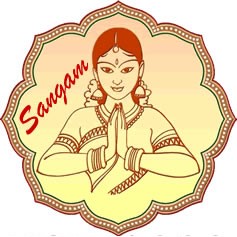by Rajkumar Sivapatham; published April 6, 2004
What do the Election Results Mean to Tamils?
It is strange that people inside and outside of Sri Lanka worry so much about the election results in Sri Lanka. The fact is the Sinhalese people have given their verdict and that is that. The Tamils on the other hand endorsed the LTTE’s request to approve that they are the representatives who will negotiate the peace for them. They have given the approval with a staggering 90% margin. The LTTE’s objective is to show the world community that Tamils absolutely trust them. The Tamils have sent the message to the world community loud and clear. It is for the world community to pick up this message and act accordingly.
 Having said this, there are concerns in the minds of some Tamils about how are the people who have been elected under the “TNA” banner going to behave in the parliament. The fact is that the Sri Lankan parliament has no real use to Tamil people. On the contrary, it is the Sri Lankan parliament that has done most (all) of the damage to the Tamils. If some of the elected Tamil MPs who are already the supporters of Karuna want to carry out their own agenda, there is nothing to stop them. But the message to the world has already been sent by the Tamil people. Therefore, the world community should be careful in picking up the message. It should realise that the Tamils have only approved the representation of the LTTE, not the actions of the TNA after the election. It should not also be interpreted that the Tamils have put their faith on the Sri Lankan parliament because an overwhelming majority of Tamils voted in this election. It is an important distinction that the world community has to make to interpret the results of the elections in the northeast correctly.
Having said this, there are concerns in the minds of some Tamils about how are the people who have been elected under the “TNA” banner going to behave in the parliament. The fact is that the Sri Lankan parliament has no real use to Tamil people. On the contrary, it is the Sri Lankan parliament that has done most (all) of the damage to the Tamils. If some of the elected Tamil MPs who are already the supporters of Karuna want to carry out their own agenda, there is nothing to stop them. But the message to the world has already been sent by the Tamil people. Therefore, the world community should be careful in picking up the message. It should realise that the Tamils have only approved the representation of the LTTE, not the actions of the TNA after the election. It should not also be interpreted that the Tamils have put their faith on the Sri Lankan parliament because an overwhelming majority of Tamils voted in this election. It is an important distinction that the world community has to make to interpret the results of the elections in the northeast correctly.
The next question is, ‘How is the new government going to take the peace process forward?’ There are some facts which need to be taken into account before answering this question. The recent parliamentary election was conducted mainly for the president to get power. There was no national crisis but there was peace. The prime minister (former) and president could have co-habited, if they had wanted to. But they had a different agenda. The president has an urgent need to amend the constitution to remove the block on becoming the executive again. It can be an executive president or executive prime minister. Amending the constitution needs a two thirds parliamentary majority, but first things first. That is: the president has to get a simple majority. That is the only reason for the election in 2004. The next step will be to amend the constitution somehow. I am sure there will be various ways to do that.
One of the ways is to get the support of the UNP MPs. That means uniting the Sinhalese MPs. This can only be done by uniting the Sinhalese against someone. The obvious choice is to unite them against the Tamils. To unite the President’s archenemies (UNP MPs) against the Tamils, there should be a problem which is serious enough. With Karuna factor in the east, it has become easy to start a war in Eelam. Another Eelam war can be made to spill over in the south so that there is a need for all the Sinhalese to unite. As the leader of the UNP is a sitting duck, the president can buy off as many MPs as possible to amend the constitution. If a war situation is created in Eelam, she can get away with not giving anything to Tamils in that amendment. This will satisfy the JVP, JHU and the other Sinhala extremists. The next war can also help these Sinhala extremists to clear the Tamils from the east, once and for all, Thanks to Col. Karuna, the so-called undisputed leader of Tamils in Batticaloa and Amparai and the son of the soil. This will be the ultimate effect of this election on Tamils and the LTTE, if they don’t do something about the Karuna factor. The number of parliamentary seats for Tamils is not important at all. The handling of events that are going to follow is all that is going to decide the fate of Tamils in Sri Lanka.
Harrow
U.K.